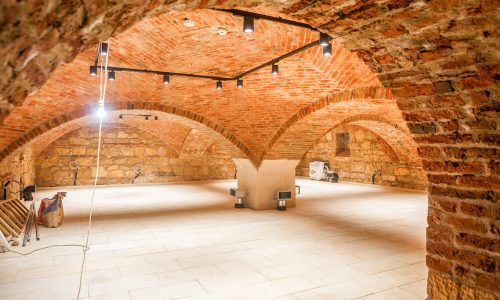Once again, we see a shift in the political landscape, following the parliamentary elections, which took part on December 1st, which is also a national holiday celebrated in Romania, ironically named “Great Union Day” at a time where on paper, it seems that the nation couldn't be more divided.
The results of the elections saw the Social Democratic Party (PSD) leading with 22.02% of the vote for the Chamber of Deputies and 22.37% for the Senate. The far-right Alliance for the Union of Romanians (AUR) secured the second position, obtaining 17.98% in the Chamber and 18.27% in the Senate. The National Liberal Party (PNL) followed with 13.24% and 14.30%, respectively.
Notably, two new parties surpassed the electoral threshold: S.O.S. Romania (SOS), led by Diana Șoșoacă, and the Party of Young People (POT), founded by Anamaria Gavrilă. SOS garnered 7.33% in the Chamber and 7.73% in the Senate, while POT achieved 6.43% and 6.36%.
The combined presence of these sovereignist parties indicates that nationalist agendas will hold approximately 32% of the seats in the forthcoming Parliament, signalling a significant shift in Romania’s political dynamics.
Voter Turnout and Public Reaction
Voter turnout for the parliamentary elections was 52.33%, reflecting a moderate level of civic engagement. The requirement for voters to cast ballots in their registered counties, coupled with the elections coinciding with the December 1 national holiday, may have influenced participation rates.
This scheduling is unprecedented in Romania’s recent electoral history. Traditionally, parliamentary elections have been held in late November or early December, but not specifically on December 1. The decision to hold the elections on this date in 2024 was influenced by the overlapping electoral calendar, which also included presidential elections around the same period
The rise of nationalist parties and Georgescu’s prominence following the presidential elections have sparked public protests in major cities, with demonstrators expressing concerns about potential shifts away from democratic values and Western alliances. These events underscore the interconnected nature of the parliamentary and presidential elections and their collective impact on Romania’s political future.
The presidential election’s first round, conducted on November 24, 2024, saw far-right candidate Călin Georgescu leading with 22.94% of the vote, followed by reformist Elena Lasconi of the Save Romania Union (USR) at 19.17%. The Constitutional Court validated these results after a recount, setting the stage for a runoff on December 8.
Georgescu’s nationalist rhetoric and pro-Russian sentiments have raised concerns about Romania’s future direction, especially regarding its commitments to the European Union and NATO. Lasconi, advocating for anti-corruption measures and democratic reforms, has called for a coalition of democratic forces to counter the rise of nationalism.
As Romania approaches the presidential runoff on December 8th, the nation stands at a pivotal juncture. The outcomes of these elections will significantly influence Romania’s domestic policies and its role on the international stage, particularly concerning its relationships with the European Union and NATO.



